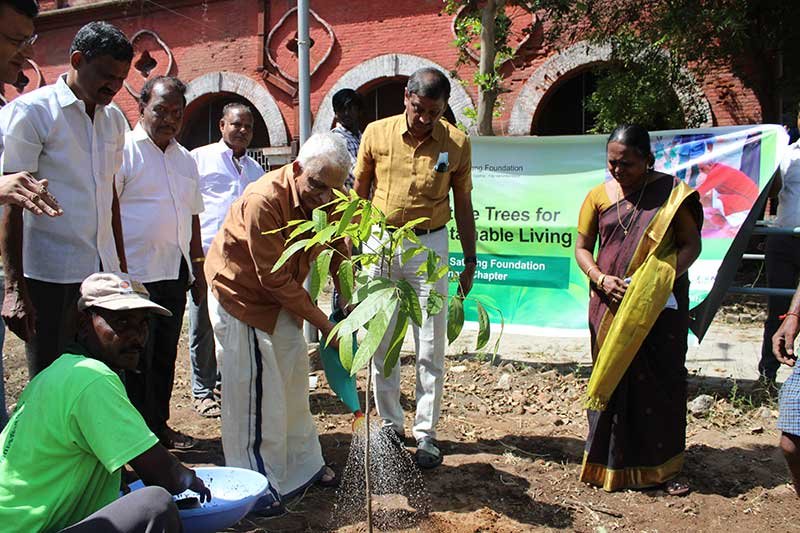Under its presidency of the G20 from 1st December 2022 to 10th September 2023, India will organize the Civil20 Summit. The Government of India has invited Sri M, Founder of The Satsang Foundation, to be a part of the C20 Core Committee, which provides a platform for Civil Society Organizations (CSO) around the world to voice the people’s aspirations with the world leaders in G20, and to promote social and economic development for all.
Sarve Bhavantu Sukhinah, Sarve Santu Niraamayaah;
Sarve Bhadraani Pashyantu,
Maa Kashcid-Duhkha-Bhaag-Bhavet
Om Shaantih Shaantih Shaantih.
May All be Happy, May All be Free from Illness;
May All See what is Auspicious, May no one Suffer.
Om Peace, Peace, Peace.
This mantra truly embodies the central philosophy of India’s ancient civilisation, that the whole world is one family, “Vasudhaiva Kutumbakam”, and the entire family’s well being must be considered together.
At the launch of the C20 initiatives, Sri M said,
“People and countries across the world are more connected today than ever before, but economic and other disparities are also dividing people enormously. India stands for the welfare of humanity as a whole and we must take a global approach to development on all counts.”
Sri M conceived the Walk of Hope, a walk for peace and harmony as a grassroots initiative in 2015-16, traveling over 7,500 kilometers, through India’s villages and cities from Kanyakumari to Kashmir. More than 10 million people from different backgrounds, religions, and political beliefs walked with him. The Walk of Hope movement has expanded to other countries and has also been recognised by the United Nations.
In the Bhagavad Gita, Krishna mentions “Sarva Bhuta Hite Ratah,” one who is mindful of the well-being of all as one of the three highest qualities of a Yogi. Swami Vivekananda interpreted this in his own way. He called it “Vedantic Socialism”, emphasizing that the supreme Atman pervades not only humans but all living beings and, thus, all are united and equal as One.
Swamiji also often quoted the shloka from the Rig Veda, “Atmano Mokshaartham, Jagat Hitaayacha”, for the salvation of our individual self and for the well-being of all on earth. He said, “The desire to do good is the highest motive and power we have, if we know all the time that it is a privilege to help others. It is not the receiver that is blessed, but it is the giver.”
- Transformative education through schools for the underprivileged and Skill Development Centres are helping to change not just the lives of the students but of their families and entire communities.
- Environmental concerns are critical to humanity’s present and its future. The protection and development of the natural environment with widespread tree plantation (Mytree) and the revival of water bodies (Satsang Jal Seva Sangatan) such as the projects linked to Godavari River in Nasik, are oriented to the well-being of not only human beings, but the entire ecosystem.
- Health and overall well-being are critical to ensure the dignity of human life, and The Satsang Foundation is working on multiple fronts on this, including through facilities to provide primary health support (and soon secondary and tertiary healthcare), promoting widespread integrated health through the Science of Yoga and through Ayurveda. An extensive programme of yoga training was created in 2022 for the inmates of prisons across India, so that they would also benefit from the well-being created by sustained, regular practice of yoga.
According to Sri M, on a global scale and within nations, the problem of the current economic model is not that there is no wealth, but there is limited and highly unequal sharing of wealth.
“A new definition for a good economy is not just about amassing wealth but proper distribution of wealth and land,” Sri M said. “The model for sharing abundance must be improved, or perhaps a new model evolved.”
Sri M mentioned about the pioneering work of late Nanaji Deshmukh (recipient of India’s highest civilian award, the Bharat Ratna) in co-operative agriculture in Chitrakoot and Gonda through Deendayal Shodh Sansthan, on the model formulated by Deendayal Upadhyaya, where small landowners put their holdings together and jointly shared their profits according to the extent of their holdings and effort. This could be a great international model in other areas of industry and profit making as well. This is the practical application of Vasudhaiva Kutumbakam, the World as a Family.
The key is working together and concern for humanity. Loka Samasta Sukhino Bhavantu.
About the G20 and C20: The G20 members consist of 19 countries plus the European Union, and India has been a member since its inception in 1999. Under the auspices of the G20, the Civil 20 (C20) engages more than 800 civil societies, representatives, and networks of various countries, including organizations from countries who are not G20 members, to ensure that people of all strata of society are heard at the G20 Leaders’ Summit.
The C20 Core Committee: Apart from Sri M, Founder of The Satsang Foundation, the other eminent people in the core committee responsible for successfully organizing the Civil20 Summit and its related events in India are Mata Amritanandmayi Devi (chairing the C20 committee, founder and chairperson of the Mata Amritanandamayi Math), Vivekanand Kendra, Kanyakumari, and Rambhau Mhalgi Prabodhini (RMP), Mumbai.


